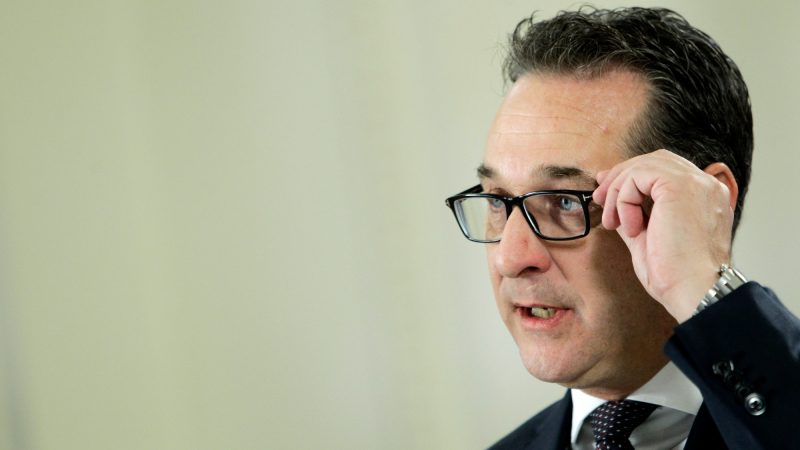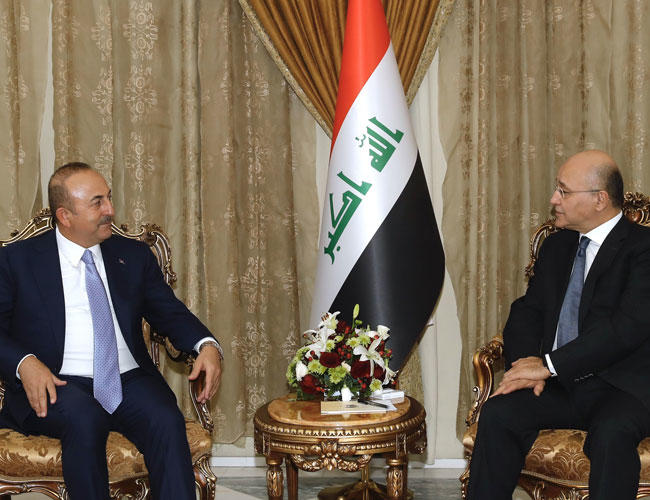
EurActiv (11 October 2018)
190 states have negotiated the UN’s global compact for migration. However, two months before it is signed, Austria is expressing its concerns. EURACTIV Germany reports.
Within the Austrian coalition government, the right-wing populist FPÖ is opting for a hard line on immigration, refugees and migration. The Vice-Chancellor Heinz-Christian Strache (FPÖ) has been drumming against the UN’s global compact for migration for a while,.
The compact should be formally adopted in Morocco in December. Among other things, he has repeatedly stressed that “migration [is] not a human right.”
The USA and Hungary have already announced that they will not sign this agreement. Poland also wants to take this step. The extent to which Austria will join these states has not yet been definitively established.
After the council of ministers, Chancellor Sebastian Kurz (ÖVP) announced a desire to closely coordinate with other states. This related to, for instance, Switzerland, which however announced its approval on Wednesday evening.
In May 2019, Europe will vote on migration
Shortly after settling in at La Moncloa, Spain’s new prime minister, Pedro Sánchez, welcomed the ship Aquarius after it was rejected by the Italian government. But a few months later, his immigration policy changed, writes Beatriz Becerra.
Internationally binding caveat
For the time being, the only thing that is certain is that the examination of the negotiated treaty is still ongoing. Neither Kurz nor Strache mentioned which specific issues were controversial.
In essence, it is a matter of every country wanting to direct its own migration policy and not have these dictated to them. In any case, Chancellor Kurz has already announced that there would be an internationally binding caveat from Austria on certain points.
The Austrian government would do everything it can to maintain the country’s sovereignty on this matter.
There was strong criticism of the government’s line from the opposition.
“Monitoring movements of refugees and tackling causes of flight can only succeed with international cooperation,” said Andreas Schieder, who has only recently been designated as the social democrat SPÖ’s “Spitzenkandidat” for the European elections.
He warned against “Austria being in the same league as Trump and [Hungarian Prime Minister Viktor] Orban” and jeopardising its reputation as a bridge builder.
The liberal party NEOS (New Austria and Liberal Forum) expressed concern that by taking such a step, Austria would be positioning itself “against the international community”. The party also underlined that the pact was not binding under international law in any case.
No comments yet.
- POLISH VETO BLOCKS EU ON RIGHTS OF GAYS AND JEWS Europe - EU 12.10.2018
- ECB CANNOT COME TO ITALY'S RESCUE WITHOUT EU BAILOUT - SOURCES Europe - EU 12.10.2018
-
 TURKEY TO REOPEN CONSULATES IN MOSUL AND BASRA: TURKISH FM
Iraq
12.10.2018
TURKEY TO REOPEN CONSULATES IN MOSUL AND BASRA: TURKISH FM
Iraq
12.10.2018
- ARMENIAN, TOGO FMS DISCUSS COOPERATION ISSUES The Caucasus and Turkish-Armenian Relations 12.10.2018
- AZERBAIJAN TO DELIVER 1/3 OF BULGARIA’S GAS DEMAND – ENVOY The Balkans 12.10.2018
-
25.01.2016
THE ARMENIAN QUESTION - BASIC KNOWLEDGE AND DOCUMENTATION -
12.06.2024
THE TRUTH WILL OUT -
27.03.2023
RADİKAL ERMENİ UNSURLARCA GERÇEKLEŞTİRİLEN MEZALİMLER VE VANDALİZM -
17.03.2023
PATRIOTISM PERVERTED -
23.02.2023
MEN ARE LIKE THAT -
03.02.2023
BAKÜ-TİFLİS-CEYHAN BORU HATTININ YAŞANAN TARİHİ -
16.12.2022
INTERNATIONAL SCHOLARS ON THE EVENTS OF 1915 -
07.12.2022
FAKE PHOTOS AND THE ARMENIAN PROPAGANDA -
07.12.2022
ERMENİ PROPAGANDASI VE SAHTE RESİMLER -
01.01.2022
A Letter From Japan - Strategically Mum: The Silence of the Armenians -
01.01.2022
Japonya'dan Bir Mektup - Stratejik Suskunluk: Ermenilerin Sessizliği -
03.06.2020
Anastas Mikoyan: Confessions of an Armenian Bolshevik -
08.04.2020
Sovyet Sonrası Ukrayna’da Devlet, Toplum ve Siyaset - Değişen Dinamikler, Dönüşen Kimlikler -
12.06.2018
Ermeni Sorunuyla İlgili İngiliz Belgeleri (1912-1923) - British Documents on Armenian Question (1912-1923) -
02.12.2016
Turkish-Russian Academics: A Historical Study on the Caucasus -
01.07.2016
Gürcistan'daki Müslüman Topluluklar: Azınlık Hakları, Kimlik, Siyaset -
10.03.2016
Armenian Diaspora: Diaspora, State and the Imagination of the Republic of Armenia -
24.01.2016
ERMENİ SORUNU - TEMEL BİLGİ VE BELGELER (2. BASKI)
-
AVİM Conference Hall 24.01.2023
CONFERENCE TITLED “HUNGARY’S PERSPECTIVES ON THE TURKIC WORLD"









